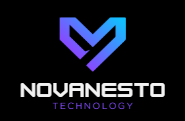The world of work is undergoing a dramatic transformation, driven largely by advancements in Artificial Intelligence (AI) and automation technologies. From self-driving cars to intelligent chatbots and data-driven decision-making tools, these innovations are changing not only how tasks are performed but also the very nature of careers themselves. As AI and automation continue to evolve, their impact on the workforce is becoming increasingly profound. This article explores the future of work in the context of AI and automation, discussing how these technologies are reshaping careers and what individuals and organizations can do to navigate this changing landscape.
The Rise of AI and Automation
AI and automation have made significant strides in recent years, thanks to breakthroughs in machine learning, natural language processing, and robotics. While automation traditionally focused on repetitive, manual tasks, today’s technologies are capable of performing complex, cognitive functions that were once thought to be exclusive to humans. AI can now analyze vast amounts of data, identify patterns, make predictions, and even engage in conversation—all tasks that were previously handled by human workers.
- Automation: Automation refers to the use of technology to perform tasks without human intervention. In industries such as manufacturing, logistics, and customer service, automation has led to the development of robots and software tools that can carry out repetitive tasks more efficiently and with fewer errors than humans.
- Artificial Intelligence: AI, a branch of computer science that simulates human intelligence, is being used to develop systems that can solve problems, make decisions, and improve performance over time. AI is increasingly being integrated into business operations, from predictive analytics in finance to virtual assistants in customer service.
Impact on Careers and Job Roles
The rise of AI and automation is reshaping careers across various industries, with both opportunities and challenges. While some jobs may be at risk of being automated, others are emerging as a result of these technological advancements. Understanding how these changes are affecting the workforce can help workers adapt to the future of work.
1. Job Displacement and Transformation
One of the primary concerns surrounding AI and automation is job displacement. As machines and algorithms become more capable, certain tasks traditionally performed by humans may become obsolete. This is particularly true in industries that rely on repetitive, manual labor.
- Manufacturing and Assembly: In manufacturing, robots and automated systems can now perform tasks such as assembly, welding, and quality control more quickly and accurately than human workers. As a result, jobs in these fields may be displaced, though new roles in robotics maintenance and supervision may emerge.
- Customer Service: AI-powered chatbots and virtual assistants are increasingly taking over customer service roles. These technologies can handle customer inquiries, resolve issues, and even process transactions. As a result, call center jobs and customer support roles may decline, but there will be an increased demand for AI specialists and customer experience managers to oversee and improve these systems.
2. Creation of New Jobs and Roles
While AI and automation may eliminate some jobs, they also create new opportunities. Many roles that didn’t exist a decade ago are now in high demand, particularly in fields related to technology and data science.
- Data Scientists and AI Specialists: As AI becomes more integrated into business operations, the demand for data scientists, machine learning engineers, and AI specialists has skyrocketed. These professionals are needed to develop, train, and optimize AI algorithms and systems.
- Robotics Technicians: With the rise of automation in manufacturing and other sectors, there is an increasing need for skilled workers who can design, maintain, and repair robots. Robotics technicians are essential for ensuring that automated systems function properly and continue to meet industry needs.
- Cybersecurity Experts: As businesses embrace AI and automation, the need for cybersecurity professionals has never been greater. With increased reliance on digital systems comes the risk of cyberattacks, making it essential to have experts who can safeguard sensitive data and protect against breaches.
3. The Shift to Creative, Strategic, and Complex Roles
AI and automation excel at performing repetitive tasks, but they still lack the emotional intelligence, creativity, and complex decision-making skills that humans bring to the table. As a result, many jobs are evolving to focus more on these uniquely human attributes.
- Creative Professions: Jobs in fields like marketing, advertising, design, and content creation are increasingly requiring creativity and innovation, which AI is less capable of replicating. While AI can assist with content generation or design suggestions, humans will still play a key role in crafting original, compelling ideas and experiences.
- Leadership and Decision-Making: AI can process data and generate insights, but human judgment is often required for making high-level decisions. As a result, leadership roles are evolving to focus on managing AI tools, interpreting data, and making strategic decisions that require human empathy, intuition, and ethics.
4. Remote Work and Flexibility
AI and automation are also transforming the way people work. With the ability to automate administrative tasks and streamline communication, many companies are adopting remote work models and offering more flexibility to their employees.
- Remote Work: Advances in collaboration tools, video conferencing, and project management software, powered by AI, have made remote work more feasible and efficient. As a result, many organizations are adopting hybrid or fully remote work environments, allowing employees to work from anywhere in the world.
- Flexible Work Hours: Automation can also provide greater flexibility in work schedules. AI tools can automate tasks like scheduling, payroll processing, and reporting, allowing employees to focus on more meaningful work and manage their time more effectively.
How to Prepare for the Future of Work
As AI and automation reshape careers, it’s important for workers to adapt and acquire the skills necessary for success in the future job market. Here are a few key strategies for navigating this transformation:
1. Embrace Lifelong Learning
To remain competitive in the evolving job market, workers must commit to continuous learning. Upskilling and reskilling will be essential for adapting to new technologies and acquiring the skills that are in demand.
- Tech Skills: Learning programming languages, data analysis, and AI-related skills will be crucial for many future careers. Online courses, boot camps, and certifications can help workers gain expertise in these areas.
- Soft Skills: In addition to technical skills, employers will place greater value on soft skills such as communication, problem-solving, and emotional intelligence. These skills are essential for roles that require creativity, leadership, and human interaction.
2. Adopt a Growth Mindset
The future of work will require workers to be adaptable and open to change. A growth mindset, which involves embracing challenges and learning from mistakes, will be critical for thriving in an environment where technological disruption is constant.
3. Stay Informed About Emerging Technologies
Workers should stay up-to-date on the latest developments in AI, automation, and other emerging technologies. By understanding how these innovations are impacting their industry, they can better anticipate changes and position themselves for new opportunities.
Conclusion
AI and automation are undoubtedly reshaping the future of work, creating new opportunities while rendering some traditional jobs obsolete. While this transformation presents challenges, it also opens the door for more fulfilling and innovative career paths. By embracing lifelong learning, developing technical and soft skills, and adopting a growth mindset, workers can thrive in an AI-powered workforce. Similarly, organizations must invest in reskilling their employees and ensuring that AI and automation are used to complement human talent, rather than replace it. The future of work is not about humans versus machines; it’s about humans and machines working together to create a more efficient, creative, and flexible work environment.


